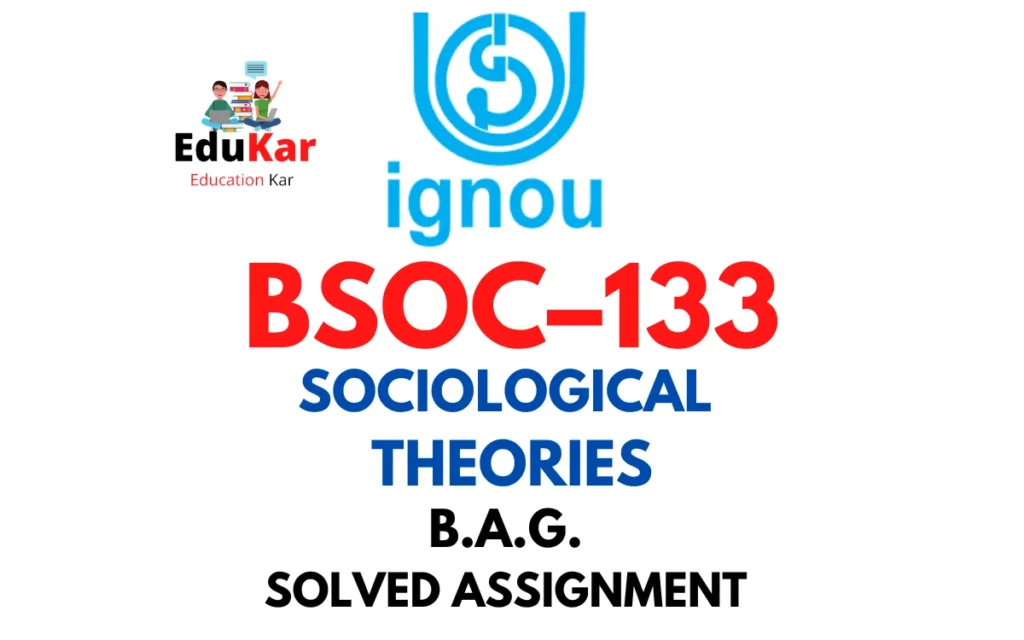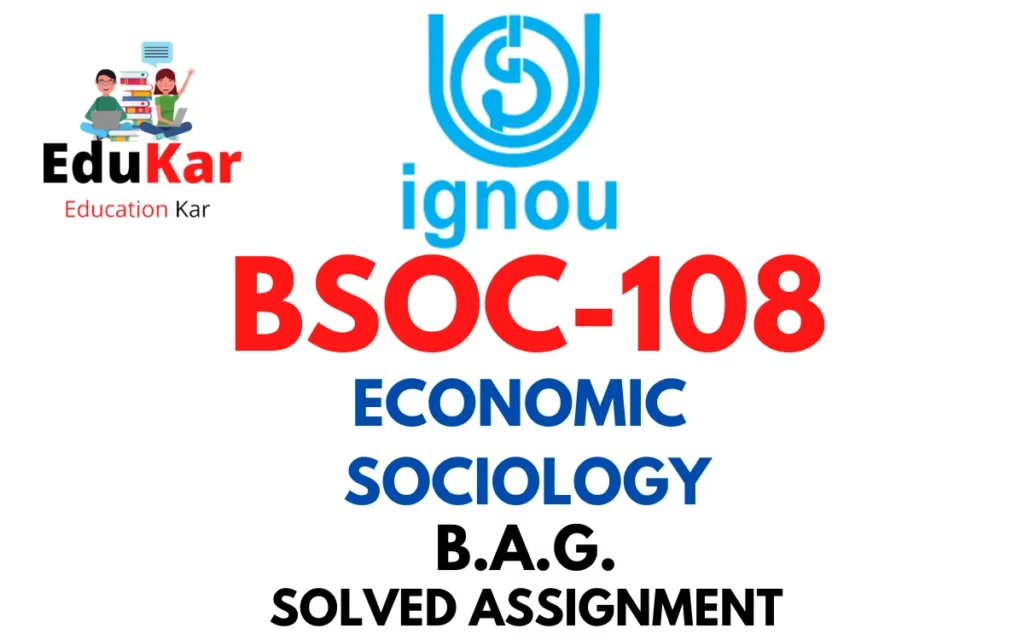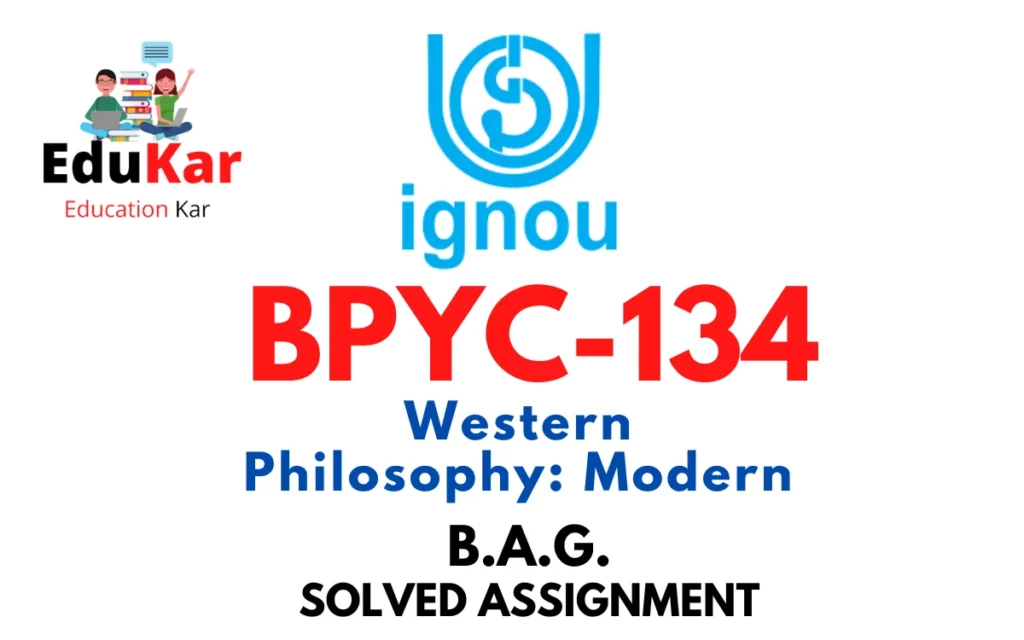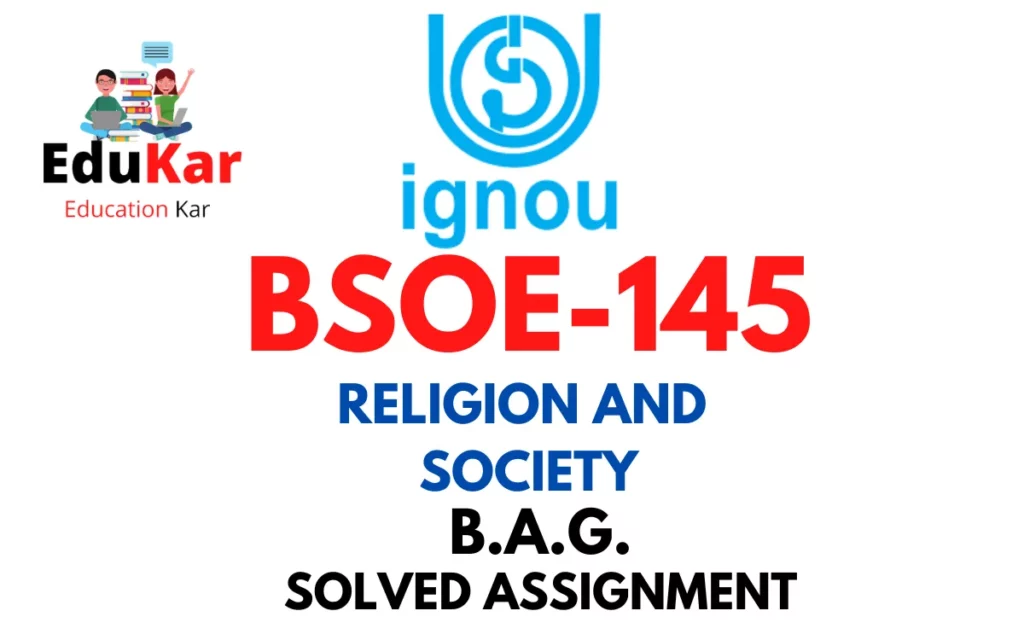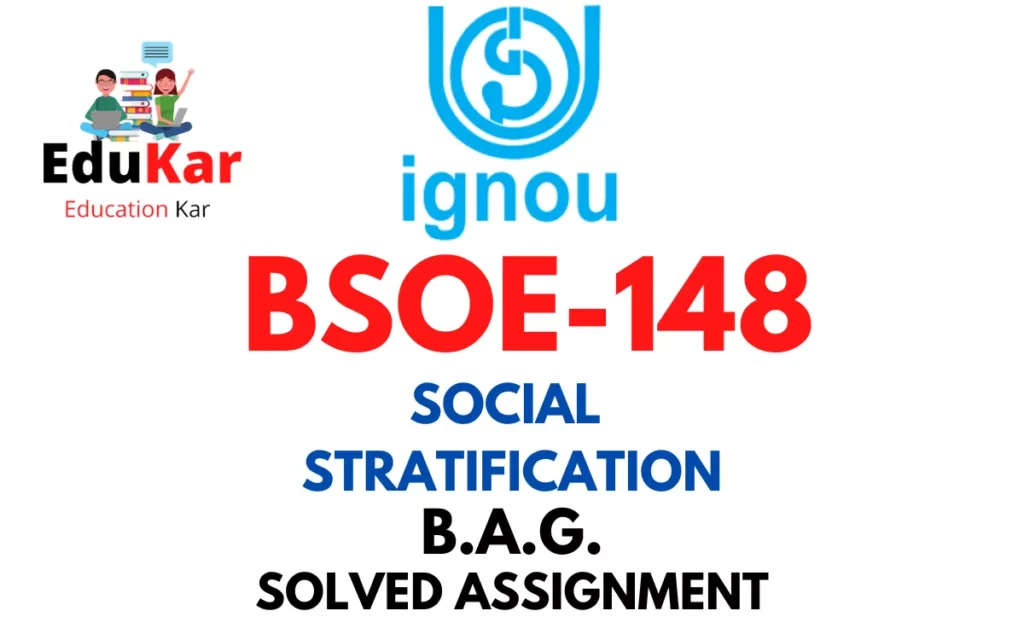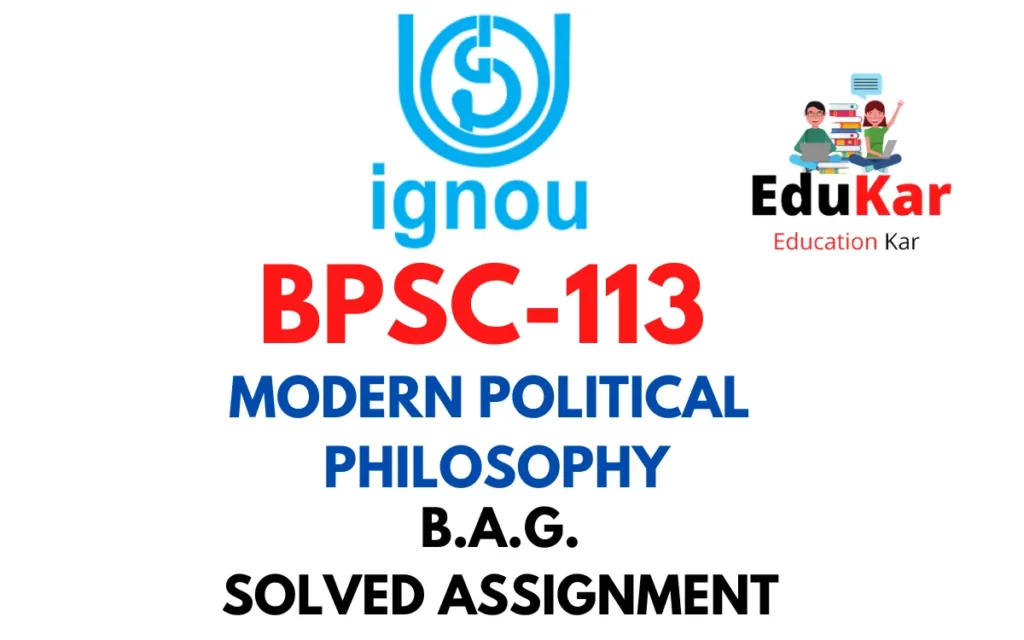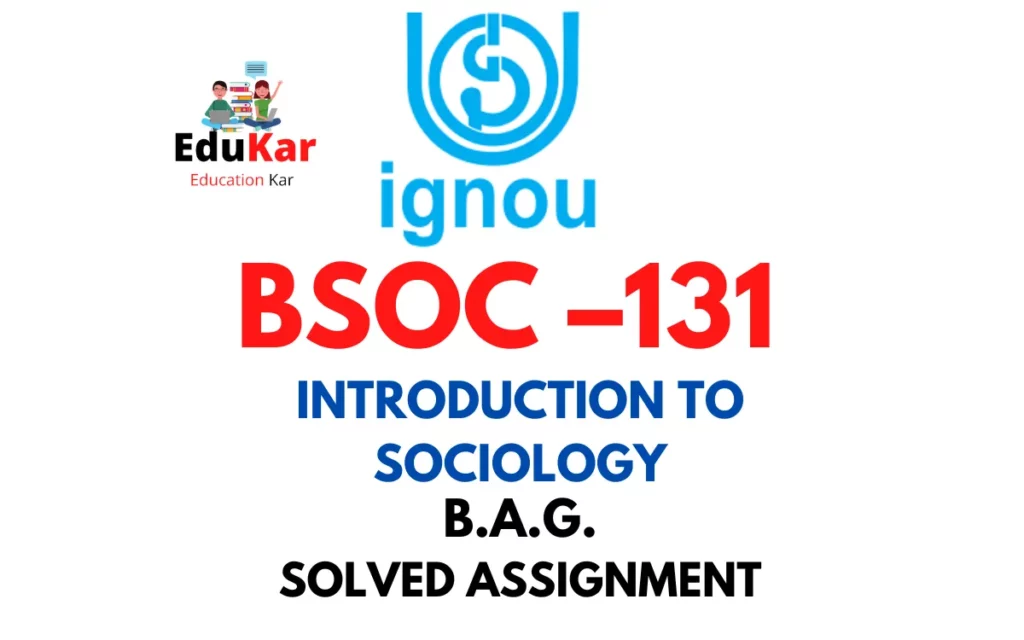Contents
- 1 Assignment-I
- 2 Answer the following in about 500 words each.
- 3 1. Discuss Marxism as an intellectual construct.
- 4 2. Explain Plato’s concept of Philosopher King.
- 5 Assignment-II
- 6 Answer the following questions in about 250 words each.
- 7 1. Write a note on Plato’s concept of justice.
- 8 2. Examine Aristotle’s views on human nature.
- 9 3. Elaborate upon Aristotle’s views on form.
- 10 Assignment – III
- 11 Answer the following questions in about 100 words each.
- 12 1. Write a note on Machiavelli’s views on power and politics.
- 13 2. Examine Machiavelli’s conception of civic virtue and freedom.
- 14 3. Discuss Hobbes’s views on matter and motion.
- 15 4. Examine the powers and privileges of Hobbes sovereign.
- 16 5. What are the grounds on which Locke justified the right to property? Elaborate.
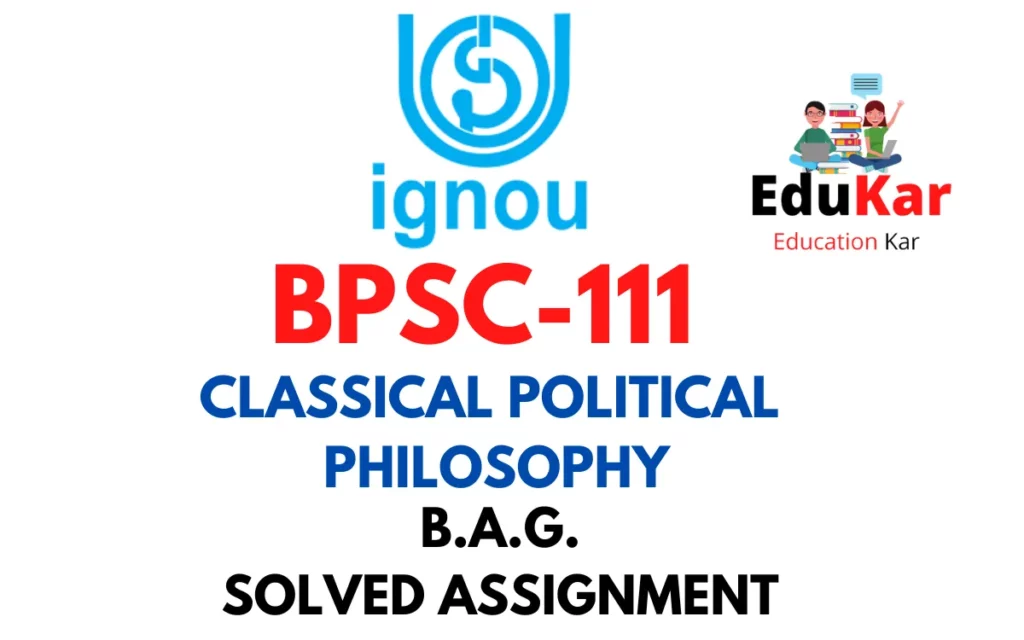
| Title | BPSC-111: IGNOU BAG Solved Assignment 2022-2023 |
| University | IGNOU |
| Degree | Bachelor Degree Programme |
| Course Code | BPSC-111 |
| Course Name | CLASSICAL POLITICAL PHILOSOPHY |
| Programme Name | Bachelor of Arts (General) |
| Programme Code | BAG |
| Total Marks | 100 |
| Year | 2022-2023 |
| Language | English |
| Assignment Code | BPSC-111/ASST/TMA/2022-23 |
| Last Date for Submission of Assignment: | For June Examination: 31st April For December Examination: 30th September |
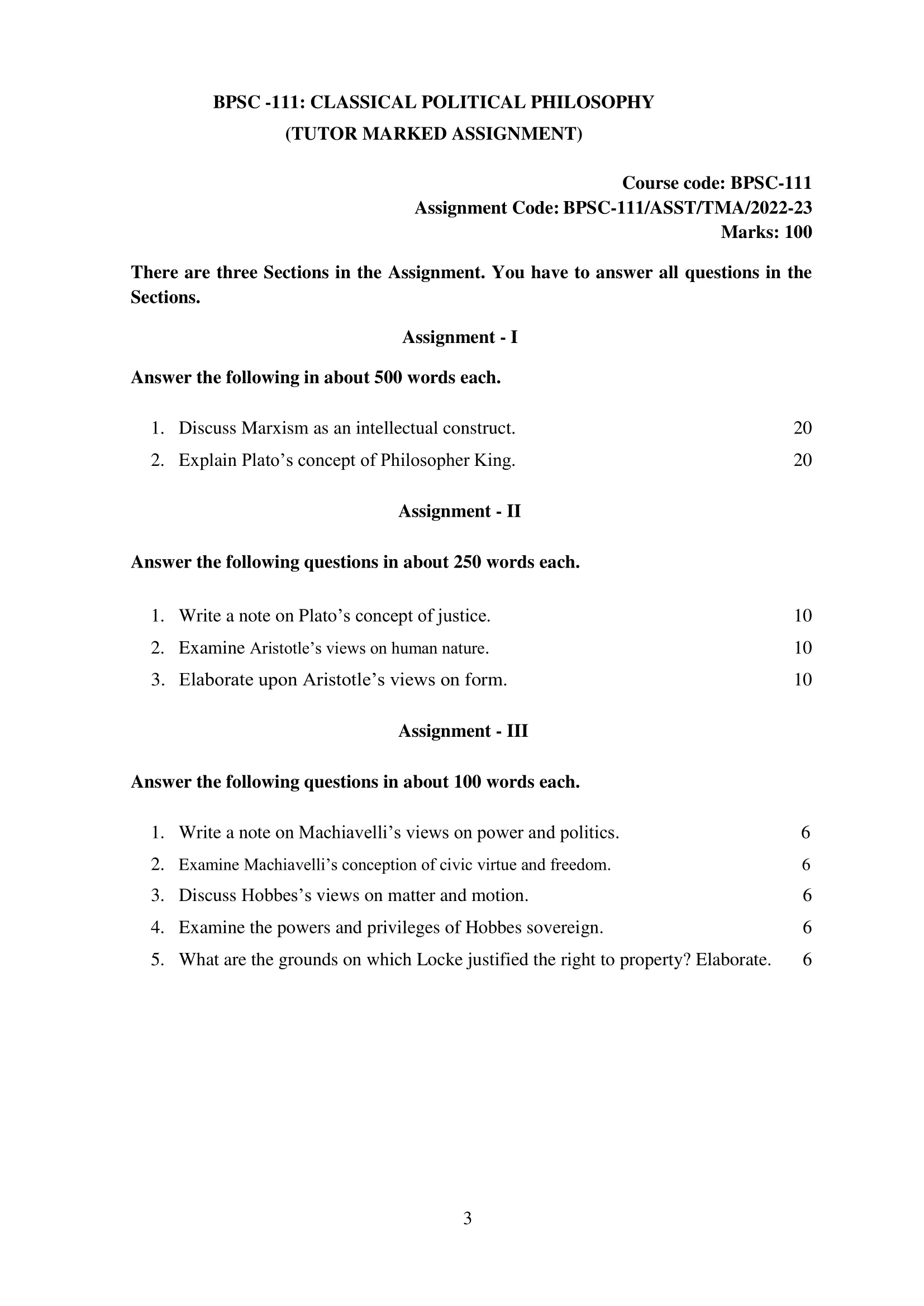
Assignment-I
Answer the following in about 500 words each.
1. Discuss Marxism as an intellectual construct.
Ans: Marxism is a political and economic philosophy that was developed by Karl Marx and Friedrich Engels in the mid-19th century. It is founded on the idea that society is divided into two main classes: the working class (proletariat) and the ruling class (bourgeoisie), and that the struggle between these two classes is the driving force behind social and economic change.
As an intellectual construct, Marxism is based on a critical analysis of capitalist society, which is characterized by the exploitation of the working class by the ruling class. Marx argued that the value of goods and services is created by the labor of the working class, but that they are paid only a fraction of the value they produce, with the rest being appropriated as profit by the ruling class. This exploitation creates alienation and poverty among the working class, while concentrating wealth and power in the hands of a small minority.
Marxism also critiques the role of the state in capitalist society, arguing that it serves the interests of the ruling class and reinforces their power and privilege. The state is seen as an instrument of repression, used to maintain the status quo and prevent the working class from achieving political and economic power.
In response to these critiques, Marxism proposes a radical transformation of society, in which the means of production are collectively owned and controlled by the working class. This would eliminate the exploitation of labor, end alienation and poverty, and create a classless society in which the state is no longer needed to maintain order.
Marxism also emphasizes the importance of collective action and solidarity among the working class, through the formation of labor unions and political parties. This collective action is seen as necessary to overcome the power of the ruling class and achieve the revolutionary transformation of society.
Overall, Marxism is an intellectual construct that provides a powerful critique of capitalism and the inequalities it produces. It offers a vision of a more just and equal society, based on the collective ownership and control of the means of production. However, its practical implementation has been a subject of debate, with some arguing that it has led to authoritarian regimes and human rights abuses in practice. Nonetheless, Marxism remains a significant intellectual construct that continues to inspire and inform political and social movements around the world.
2. Explain Plato’s concept of Philosopher King.
Ans: Plato’s concept of the philosopher king is a political idea that is presented in his famous work, “The Republic.” Plato believed that philosophers were the most capable and knowledgeable individuals in society and that they should be given the responsibility of ruling the state as kings.
According to Plato, the philosopher king would be a person who has a deep understanding of truth, goodness, and justice, and who is capable of making decisions based on reason rather than emotion or personal interest. This person would have a natural inclination towards philosophy and would have a strong desire to seek knowledge and wisdom.
Plato believed that the philosopher king would be the ideal ruler because he or she would be free from the passions and biases that can influence other people’s decisions. The philosopher king would be motivated solely by a commitment to the common good and the well-being of the state, and would be guided by reason in all their actions and decisions.
Plato argued that the philosopher king would need to undergo a rigorous training program in philosophy and politics in order to prepare them for their role as ruler. This training would involve many years of study, as well as practical experience in governance and leadership.
Plato also believed that the philosopher king would need to be supported by a system of governance that was designed to promote the common good rather than the interests of the ruling class. This would involve a system of checks and balances, in which the philosopher king would be held accountable for their actions by other philosophers and by the people.
Assignment-II
Answer the following questions in about 250 words each.
1. Write a note on Plato’s concept of justice.
Ans: Plato’s concept of justice is a central theme in his work, “The Republic.” According to Plato, justice is an essential virtue that forms the foundation of a healthy society. He believed that justice was not only important for individuals but also for the greater good of society as a whole. Plato’s understanding of justice is based on the idea that everyone has a specific role to play in society, and when each person performs their role well, it creates a harmonious society.
Plato divided society into three classes: the ruling class, the military class, and the working class. The ruling class consisted of philosophers who were responsible for governing society, the military class protected the society, and the working class provided goods and services necessary for society’s functioning. Plato believed that each person should do what they are best suited to do, and that when everyone performed their role to the best of their ability, it created a just society.
Plato also believed that individuals could achieve personal justice by living a virtuous life. According to Plato, virtues such as wisdom, courage, and temperance were essential for achieving personal justice. He believed that a just society was one in which each individual pursued these virtues and worked together for the greater good of the society.
2. Examine Aristotle’s views on human nature.
Ans: Aristotle’s views on human nature are an essential part of his philosophy, and they have had a significant impact on Western thought. According to Aristotle, human beings are social and rational creatures who possess a unique capacity for moral reasoning.
Aristotle believed that human nature is inherently rational and that people have the ability to reason and make choices. He believed that the human soul had three parts: the rational part, the irrational part, and the vegetative part. The rational part of the soul was responsible for moral reasoning, while the irrational part of the soul was responsible for emotions and desires. The vegetative part of the soul was responsible for the physical needs of the body.
Aristotle believed that the goal of human life was to achieve eudaimonia, which he defined as a state of happiness and fulfillment. He believed that achieving eudaimonia required individuals to develop their rational and moral capacities and to live a life of virtue. According to Aristotle, virtues such as courage, justice, and wisdom were essential for achieving eudaimonia.
Aristotle also believed that human beings are social creatures who thrive in communities. He believed that the family was the most basic unit of society and that individuals had a natural desire to form communities with others. Aristotle believed that communities allowed people to develop their moral and social capacities and to achieve a greater sense of fulfillment.
3. Elaborate upon Aristotle’s views on form.
Ans: Aristotle’s views on form are a central aspect of his philosophy, and they are essential to his theory of metaphysics. Aristotle believed that everything in the world has a form, which is the essence or nature of the thing. Form is what makes a thing what it is and distinguishes it from other things.
Aristotle believed that there are two types of form: formal and material. Formal form is the essential nature of a thing, which makes it what it is. For example, the formal form of a chair is what makes it a chair and distinguishes it from other types of furniture. Material form, on the other hand, is the physical matter that makes up a thing. In the case of a chair, the material form is the wood, metal, or plastic that makes up the chair.
Aristotle believed that form and matter were not separate entities, but rather that they were inseparable aspects of a thing. He believed that matter was potential, and form was actualization. In other words, matter had the potential to become something, and form was what actualized that potential.
Aristotle also believed that there were different levels of form, with each level building upon the previous level. The lowest level of form was the material form, which was the physical matter that made up a thing. The next level was the formal form, which was the essential nature of a thing. The highest level of form was the final cause, which was the purpose or goal of a thing.
Assignment – III
Answer the following questions in about 100 words each.
1. Write a note on Machiavelli’s views on power and politics.
Ans: Machiavelli was an Italian political philosopher who lived during the Renaissance period. He is best known for his book “The Prince,” which is a treatise on political power and leadership. Machiavelli believed that the ultimate goal of politics was to acquire and maintain power, and that rulers should be willing to use any means necessary to achieve this goal. He argued that the most successful leaders were those who were ruthless, cunning, and unscrupulous, and that they should be prepared to use force, deception, and even cruelty to achieve their objectives. Machiavelli’s views on power and politics were controversial in his time, and continue to be debated and discussed by scholars today.
2. Examine Machiavelli’s conception of civic virtue and freedom.
Ans: Machiavelli’s conception of civic virtue and freedom is a complex and multi-faceted one. He believed that civic virtue was essential for the stability and prosperity of the state, and that citizens should be willing to put the interests of the state ahead of their own personal interests.
Machiavelli also believed that freedom was essential for the flourishing of the state, but his definition of freedom differed from the classical and Christian traditions. For Machiavelli, freedom was not the absence of constraints or the ability to do whatever one wants, but rather the ability to act in one’s best interests and to exercise control over one’s own life.
In Machiavelli’s view, the ideal citizen was one who was both virtuous and free, but he recognized that these two values could sometimes come into conflict. He argued that in times of crisis or war, citizens might need to make sacrifices in order to preserve the freedom and security of the state. This could involve giving up some of their individual liberties, or even risking their lives in defense of the state.
Machiavelli’s conception of civic virtue and freedom is closely tied to his idea of the state as a powerful and independent entity, separate from the interests and desires of individual citizens. He believed that the state should be free to pursue its own interests, even if this meant using force or deception to achieve its objectives.
3. Discuss Hobbes’s views on matter and motion.
Ans: Thomas Hobbes was an English philosopher who lived during the 17th century. He is best known for his political philosophy, but he also made significant contributions to the fields of physics and mathematics. Hobbes’ views on matter and motion were influenced by his belief in the importance of empirical observation and the use of mathematical reasoning in scientific inquiry.
Hobbes believed that all matter was composed of tiny particles in motion, and that the properties of matter could be explained by the motion and interaction of these particles. He also believed that motion was an essential property of matter, and that it was impossible for any object to be completely at rest.
Hobbes’ views on matter and motion were based on the mechanical philosophy, which held that the natural world could be explained in terms of matter, motion, and the laws of physics. He believed that the laws of nature were immutable and could be expressed in mathematical form, and that scientific knowledge could be used to control and manipulate the natural world for human benefit.
Hobbes’ views on matter and motion were also reflected in his political philosophy. He believed that society was like a machine, with individuals acting as the parts that needed to be controlled and directed by a central authority. This authority, he argued, should be an absolute monarch with the power to impose order and ensure the stability of the state.
4. Examine the powers and privileges of Hobbes sovereign.
Ans: According to Hobbes, the sovereign – an absolute monarch – possessed extensive powers and privileges that were necessary to maintain the stability and security of the state. These powers and privileges were based on the principle of the social contract, which held that individuals gave up some of their natural rights in exchange for protection and security provided by the sovereign.
Some of the key powers and privileges of the sovereign, as outlined by Hobbes, include:
- Absolute authority: The sovereign had absolute authority over all aspects of the state, including the power to make and enforce laws, levy taxes, and maintain the military.
- No legal limitations: The sovereign was not bound by any laws or moral codes, and could use any means necessary to maintain order and stability, including force and violence.
- The power to judge: The sovereign had the power to judge all legal matters, and was the final arbiter of disputes and conflicts within the state.
- The power to grant and revoke property rights: The sovereign had the power to grant or revoke property rights as necessary to maintain the stability of the state.
- Immunity from prosecution: The sovereign was immune from prosecution and could not be held accountable for any actions taken in the name of the state.
These powers and privileges of the sovereign were intended to ensure that the state was able to maintain stability and security, and to prevent individuals from acting in their own self-interest at the expense of the common good. While Hobbes’ ideas have been criticized for their authoritarianism and lack of democratic principles, they continue to be studied and debated by political theorists today.
5. What are the grounds on which Locke justified the right to property? Elaborate.
Ans: John Locke’s theory of property is based on the idea that individuals have a natural right to property, which is grounded in their labor. According to Locke, when individuals mix their labor with the land, they create a property right in that land. This is because the labor that individuals put into the land makes it more valuable and productive.
Locke also believed that property rights were necessary to protect individual liberty. He believed that without property rights, individuals would not be able to enjoy the fruits of their labor and would be at the mercy of others. By recognizing the right to property, Locke believed that individuals could be protected from arbitrary interference by others.
In addition, Locke argued that property rights were necessary to promote economic growth and development. He believed that when individuals were allowed to acquire and use property, they would be motivated to invest in their land and make it more productive. This, in turn, would lead to economic growth and the creation of wealth.
How to Download BPSC-111 Solved Assignment?
You can download it from the www.edukar.in, they have a big database for all the IGNOU solved assignments.
Is the BPSC-111 Solved Assignment Free?
Yes this is absolutely free to download the solved assignment from www.edukar.in
What is the last submission date for BPSC-111 Solved Assignment?
For June Examination: 31st April, For December Examination: 30th October

